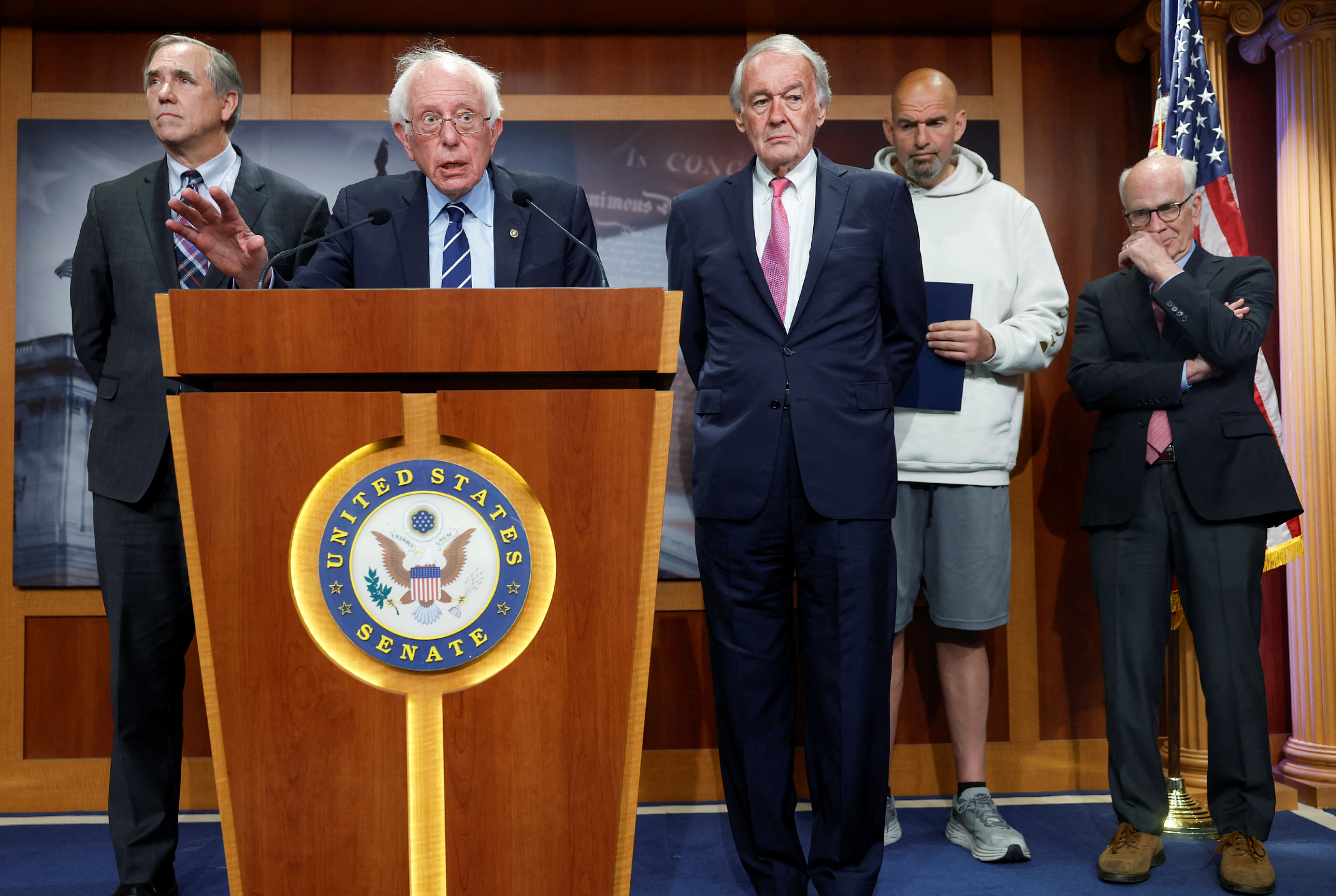The U.S. Senate successfully approved a bipartisan bill, supported by President Joe Biden, that eliminates the government’s $31.4 trillion debt ceiling.
This action prevented the occurrence of a historic default. The Senate voted 63-36 in favor of the bill, which had already been passed by the House of Representatives the previous day. Lawmakers were working against the clock after months of partisan conflicts between Democrats and Republicans.
If Congress had failed to take action by June 5, the Treasury Department warned that it would be unable to fulfill its financial obligations. Senate Majority Leader Chuck Schumer stated that they were avoiding default by passing the legislation in the Senate.
President Biden commended Congress for their prompt action, describing the bipartisan agreement as a significant victory for the economy and the American people.
He intends to sign the bill into law as soon as possible and will address the matter further in a statement on Friday.

Biden was actively involved in negotiations for the bill with House Speaker Kevin McCarthy. Although this contentious battle has concluded, Senate Republican Leader Mitch McConnell wasted no time in highlighting the next budget dispute.
He stated that Senate Republicans would continue to work on providing for national defense and reining in the reckless spending of Washington Democrats.
Treasury Secretary Janet Yellen emphasized the importance of safeguarding the full faith and credit of the United States, expressing her strong belief that it should never be used as a bargaining tool, as it had been over the past few months.
Before the final vote, senators debated and rejected nearly a dozen amendments during a late-night session in anticipation of the Monday deadline.
The legislation suspends the statutory limit on federal borrowing until January 1, 2025. Unlike most other developed countries, the United States restricts the amount of debt the government can incur, regardless of the allocated spending by the legislature.
Schumer remarked that America could now breathe a sigh of relief following the passage of the bill.
US Congress Successfully Averts First-Ever Default, Lifts Debt Ceiling
Republicans had previously obstructed any increase in the debt limit until they secured substantial spending cuts to address the rapidly increasing national debt.
Biden, on the other hand, advocated for tax increases on the wealthy and corporations to tackle the growing debt, but Republicans refused to consider any tax hikes.
Both parties protected Social Security, Medicare, military, and veterans’ programs from cuts, leaving only a limited range of domestic discretionary programs to bear the brunt of spending reductions.
Ultimately, Republicans achieved approximately $1.5 trillion in cuts over a decade, although the full realization of these reductions remains uncertain. Their initial proposal sought $4.8 trillion in savings over the same period.
Since January, the Treasury has been using “extraordinary measures” to manage the funds required to meet the government’s financial obligations, as it technically reached its borrowing limit.

Biden, Yellen, and congressional leaders all recognized the severe consequences of triggering a default due to insufficient funds.
These consequences included creating turmoil in global financial markets, potentially leading to job losses, a recession in the United States, and increased interest rates for families on mortgages and credit card debt.
The Republican-controlled House passed the bill on Wednesday with a vote of 314-117, with most of the opposition coming from Republicans.
Schumer emphasized the urgency of the situation, stating that the Senate did not have the luxury of time and any unnecessary delays or last-minute obstacles would pose an unnecessary and potentially dangerous risk.
Among the debated amendments were proposals for deeper spending cuts than those included in the House-passed bill and measures to halt the fast-track approval of a West Virginia energy pipeline.
Republican Senator Roger Marshall proposed an amendment to implement stricter border controls in response to the influx of immigrants at the U.S.-Mexico border. He argued that his measure would put an end to the lawlessness observed at the southern border.
However, the Senate rejected the amendment, with Democrats contending that it would remove protections for child migrants and harm American farmers who rely on immigrant workers.











